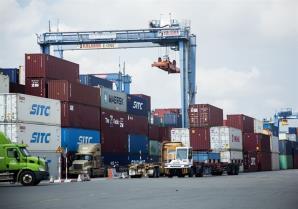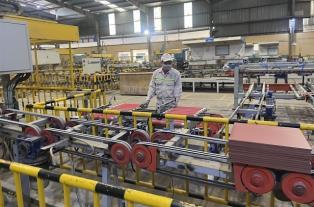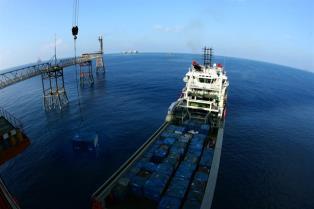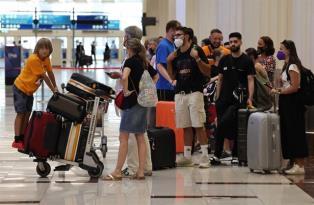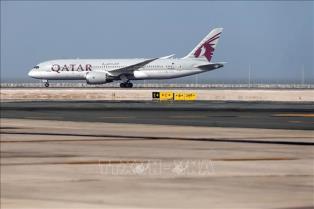Cà Mau is committed to providing the most favourable conditions for all businesses coming to invest in the province, authorities in the country’s southernmost province have said.
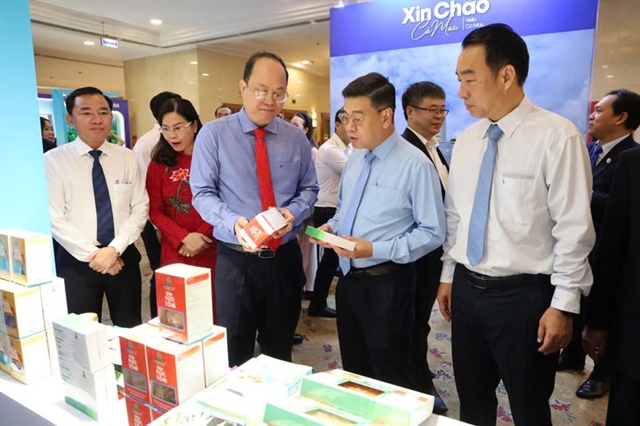
HCM CITY — Cà Mau is committed to providing the most favourable conditions for all businesses coming to invest in the province, authorities in the country’s southernmost province have said.
The province would stand alongside and accompany businesses and investors to exploit and sustainably leverage its potential and address issues promptly with the highest sense of responsibility, Nguyễn Hồ Hải, the province Party Committee Secretary, promised.
Cà Mau is striving to become an attractive destination for investors, he said while addressing an investment cooperation conference held in HCM City on Tuesday.
It has a strategic position as the country’s southern tip and acting as a gateway connecting Việt Nam with Southeast Asian markets and the world, he said.
Following its merger with Bạc Liêu Province, Cà Mau has entered a new phase of development with its vast geographical area and a number of outstanding advantages, he said.
With 310km of coastline and a vast sea area of some 120,000km, its rich fishing grounds, large-scale brackish water aquaculture areas, coastal fishing ports, and well developed logistics systems have helped Cà Mau become the country’s leading seafood production, processing and export hub, he said.
“The province has many converging strategic advantages, such as being a national seafood centre with the potential to reach international stature and a renewable energy hub, and possessing a natural mangrove ecosystem favourable for developing the green and circular economies.
“Furthermore, the transportation and logistics system in the province is being invested in at the same time.”
The investments include in the Hòn Khoai General Port, which is capable of berthing vessels of up to 250,000 DWT, and upgrades to Cà Mau Airport and three expressways connecting the province to the rest of the southern region and HCM City, he said.
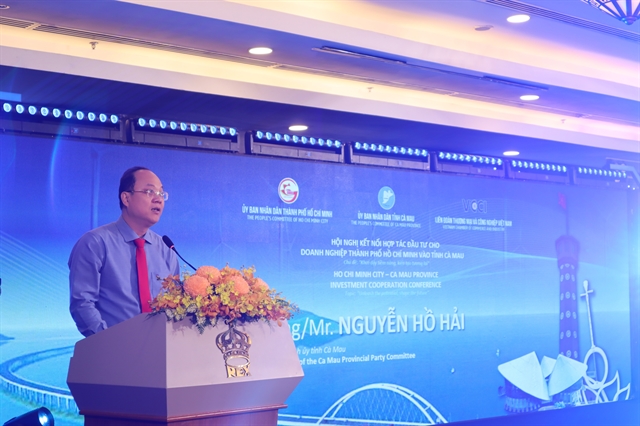
The Provincial Party Congress of Cà Mau for the 2025–30 term is determined to achieve double-digit economic growth based on the “Four Pillar Strategy” that includes interconnected transport infrastructure, the marine economy, clean and high-tech agriculture, services, and tourism, he said.
The province maintained a high economic growth rate in 2020-25, averaging over 7 per cent a year.
The fisheries sector has been identified as its economic spearhead.
The province produces 1.27 million tonnes of fisheries products a year, and leads the country in shrimp output.
Sustainable models such as shrimp forest and shrimp rice farming are developed based on the province’s rich natural ecosystems.
At the same time, intensive shrimp farming models using modern technology are also rapidly expanding, resulting in improved productivity and quality to meet the stringent standards of major markets such as the US, the EU and Japan.
In addition to shrimp, the province also has more than 340,000 hectares of crab farming with an annual commercial output of around 42,000 tonnes.
The province strives to become the country’s largest crab farming hub, and is applying advanced technology to meet international standards.
It is home to more than 89 seafood processing plants with a total capacity of around 500,000 tonnes a year, whose products reach more than 60 countries and territories.
In the industrial sector, there is the Gas-Power-Fertilizer Industrial Complex in operation which includes a thermal power plant with a capacity of 1,500MW and a fertiliser plant producing more than one million tonnes of urea a year.
There are 16 wind power plants in operation with a combined capacity of nearly 900MW and an annual power output of 263 million kWh.
The Bạc Liêu LNG Power Plant with a capacity of 3,200MW is soon set to see the start of construction.
The province’s renewable energy plan includes 34 wind power projects totaling 2,349MW.
The province has 12 tourist sites recognised by the Mekong Delta Tourism Association.
It boasts ideal conditions for developing ecological, marine tourism, community-based, and spiritual-cultural tourism.
Hải admitted however that there are still some major difficulties that prevent the province from fully tapping its economic potential.
Due to its considerable distance from the country’s major economic centres, investment in transport infrastructure remains a major challenge, he said.
Furthermore, the Government has not yet provided specific mechanisms for the province to rapidly develop key economic sectors, such as special policies for high-tech agriculture, energy or logistics infrastructure.
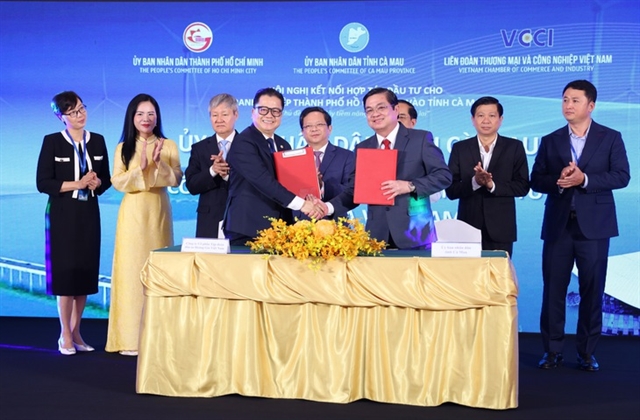
Nguyễn Đức Hiển, deputy head of the Central Policy and Strategy Department, said Cà Mau has enormous potential for development.
It has received close attention from Party and State leaders, especially its two important infrastructure projects: the Hòn Khoai General Port and the expressway connecting Cà Mau with Đất Mũi (Cà Mau Cape), he said.
This investment, along with the upgrade of Cà Mau Airport, would create the conditions necessary for Cà Mau to achieve a breakthrough in terms of development, he said.
Hòn Khoai Port, which is expected to be completed by late 2028 or early 2029, and the expressway system would greatly facilitate the international trade of goods for the Cửu Long (Mekong Delta) region, he added.
Nguyễn Văn Dũng, deputy chairman of the HCM City People’s Committee, said to fulfill its double-digit growth target, HCM City needs to expand its regional linkages and establish supply chains for raw materials, production and logistics and tourism services.
He said the cooperation between the city and Cà Mau over the years has been positive in terms of results in investment, trade, tourism, healthcare, human resource training, and OCOP (One Commune One Product) products.
These achievements have established a foundation for socio-economic development linkages between the two localities, he said.
He said the two should continue to proactively provide information to investors and promptly receive and process their proposals.
The HCM City - Cà Mau Province investment cooperation conference held by its People’s Committee, HCM City and the Vietnam Chamber of Commerce and Industry, offered a great opportunity for businesses and investors to meet, compare notes and explore investment opportunities in the province, he added. — VNS

